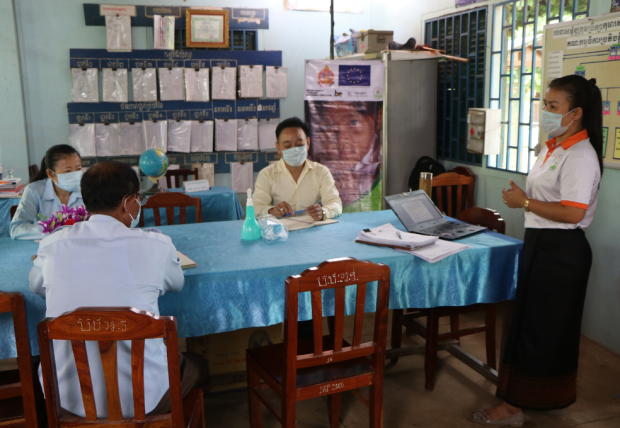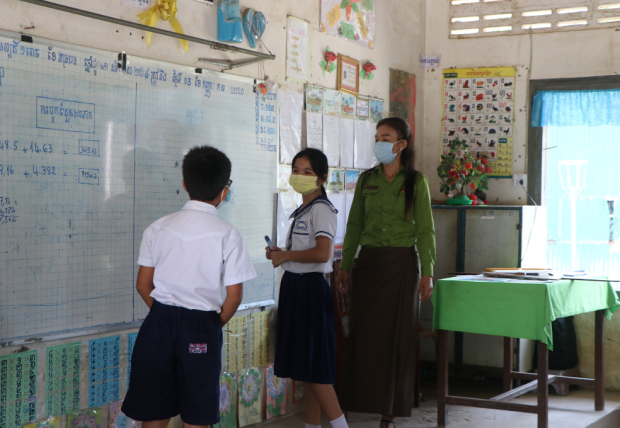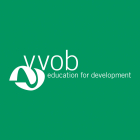Gender-responsive schools for equitable education
Discussion details
School-related gender-based violence (SRGBV) is a serious obstacle to achieving gender equality, which is perpetuated through traditional gender norms. In Cambodia, gender-based violence against women and girls is still a concerning issue, jeopardising inclusive and equitable education for both girls and boys.
Very often, schools are enabling environments for the construction of gender identities and relations. And while education is critical in empowering and transforming the lives of young people, learners in early childhood, primary and lower secondary education are especially susceptible to form gender stereotypes and gender inequalities, a precursor to gender-based violence.
Teachers and school leaders are aware of the fundamental role they play in creating safe learning environments, defined by non-violence, acceptance of differences and gender equality. However, they may feel insufficiently equipped to address SRGBV and to create a positive attitude towards girls in their learning communities.

Beneficiaries of the TIGER project in Battambang province, Cambodia.
With the goal to make schools safe learning environments for both girls and boys, VVOB’s EU-co-funded Teaching for Improved Gender Equality and Responsiveness project (TIGER) turned the Teacher Education College and 40 pilot schools in Cambodia’s Battambang province into centres of excellence for gender-responsiveness. The TIGER project, which concluded by the end of 2020, focussed on primary and lower secondary schools, and ensured that learners are protected from SRGBV and empowered them to take part in all spheres of life – at school, at home and in their communities.
|
Children start forming gender identities and stereotypes at the early age of 3. This process of gender socialisation is reinforced in preschool environments, for example through gender-specific toys and gender-specific activities. To strengthen the capacities of preschool leaders and teachers, VVOB implemented the EU-co-funded GENTLE project in Vietnam to address children’s early year experiences through a gender-responsive play-based learning toolkit. |
Centred on improving initial training and professional development, the TIGER project equipped teachers and school leaders with the capacity to identify the key spaces in school life where gender is important. They were provided with tools to address gender biases through changing attitudes and beliefs.
One of the three project pillars of TIGER is the Action Guide, which has been developed to support the gender-responsive transformation of schools into safe and learning-friendly environments beyond Battambang province. It introduces its users to key concepts and knowledge on gender and SRGBV, while also providing guidelines to put gender-responsive teaching into practice. For example, one of the seven lessons developed under the Action Guide is “Gender-responsive classroom arrangement”, which is a crucial aspect of gender-responsive teaching.
|
“I now alternate boys and girls in the seating plan. I did this to stimulate trust between one another. This makes it easier for them to share experiences.” - Ms Kun Theary, Teacher, Samdach Chea Sim Primary School in Battambang province, Cambodia. |
The TIGER project further improved knowledge and practice of student teachers, in-service teachers and school leaders to enable gender-responsive environments and organised an outreach campaign on the protection of girls from all forms of violence. To move beyond the 40 pilot schools, the TIGER project has also given financial and capacity development support to third party CSOs that are members of the Battambang Education Support Team, with which five local CSOs transform at least an additional 20 schools into gender-responsive schools on their own account.

Learners and teacher in a TIGER project school in Battambang province, Cambodia.

Log in with your EU Login account to post or comment on the platform.